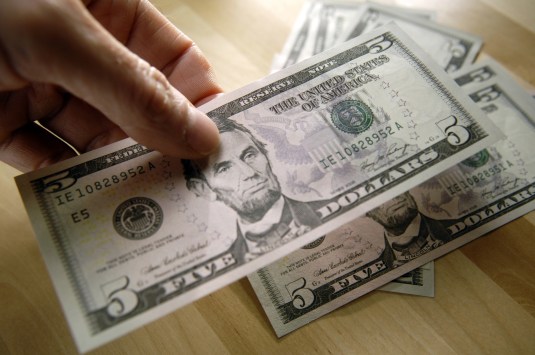As the county struggles with a budget deficit, growing expenses, and the need to increase the pay of sheriff’s deputies, Seminole County commissioners may decide to raise property taxes for the first time in sixteen years.
To increase money, county officials are also considering raising taxes on utility bills, such as those for electricity and water, and at gas stations.
Even though Seminole anticipates a 6.75% gain in property values this year, which would generate an additional $16.6 million in taxes, the proposed tax hikes still go ahead.
Notwithstanding that increase, county officials stated that they still face a projected $35 million deficit in the county’s general fund for the upcoming fiscal year, as receipts are anticipated to reach $345.6 million while expenses will reach $380.5 million. The majority of the county’s daily activities are funded by the general fund.
The county’s decision to raise property taxes coincides with Governor Ron DeSantis’ argument that property taxes should be reduced or eliminated statewide since Floridians are paying excessive amounts. However, Seminole’s present rate is low when compared to the majority of other counties, and because there isn’t much developable land remaining for residential developments, it has limited chance to fill its coffers with new tax-paying projects.
The projected Seminole overall budget for the upcoming fiscal year, which begins on October 1, is $1.23 billion, which is an increase of $129 million, or 11.7%, over the current fiscal year. Sixty-eight percent of the funding goes toward public safety.
This week, Seminole authorities stated that they have few options for addressing the general budget deficit. They have the option of raising taxes, cutting services, or depleting reserve funds for the second year in a row.
Among the most complicated budgets we have ever encountered is this one. due to the long-term issues that have been accumulating over time, according to County Manager Darren Gray. The growing expenses of maintaining necessary services are what are driving this budget increase rather than expansion.
Commissioners want to increase the general property tax rate for the entire county from around $4.88 per $1,000 of taxable value to almost $5.38, which would be a little more than 10% increase. According to county data, the increase would generate an extra $27.2 million in revenue.
The owner of a house worth $300,000 would pay $144 more in property taxes under the higher rate.
At the moment, Seminole has the lowest overall tax rate in Central Florida, which includes the water management district and school board. Seminole’s overall tax rate would increase slightly beyond Lake County’s total tax rate, but it would still be lower than Orange and Osceola county rates, if commissioners accept the general tax hike on July 22.
County budget authorities cited inflation as the reason for the 49% increase in energy expenses, 54% increase in personnel costs (including employee pay, retirement plans, and insurance), and 78% increase in medical health insurance claims over the previous five years.
Because Seminole is primarily built out, development has slowed significantly in recent years, according to Commission Chair Jay Zembower, which is a contributing factor to the county’s current financial crisis.
“There isn’t much new tax revenue coming in,” he stated. Some of that is simply due to the fact that, aside from redevelopment, there isn’t much more to build in this county.
If the proposal is accepted, the total tax rate would be roughly $13.21 per $1,000 of a property’s taxable value. County homeowners already pay property taxes for highways, storm water, fire, and ambulance.
In 2009, Seminole last increased its general property tax rate to $4.90; but, a year later, it was dropped to its present amount.
Additionally, commissioners are thinking about raising the gas tax by five cents to eleven cents per gallon. In the first year, that would generate an additional $5.5 million.
Additionally, they are considering increasing the utility services tax in Seminole’s unorganized sections. Customers’ electric, water, gas, and propane bills are increased by the tax, which is presently 4%. By September 30th, commissioners would decide on such taxes.
One of the lowest starting salaries among Central Florida law enforcement agencies, according to Seminole Sheriff officials, is $58,024 for a rookie deputy.
Sheriff Dennis Lemma claimed that as a result, his department is losing young deputies—many of whom have only a few years of experience—to other agencies that provide higher compensation and signing bonuses. For instance, Pinellas County has provided over $30,000 in signing bonuses.
Although this is relatively new to the policing field, it has produced a cycle of attrition and rivalry that we have seen in other professions. Lemma stated that the department’s proposed budget of slightly more than $196 million represents a nearly $16.2 million, or 9%, increase over the current fiscal year.
Many deputies with years of experience now make about the same as new deputies, Lemma added.
He claimed morale can suffer. The safety of the community might be at danger. Our goal is to draw in and keep [deputies]. However, our compensation has become unbalanced.
An additional $17.4 million is allocated for human expenditures in his proposed budget.
Each of Seminole’s seven communities has its own police department, even though all property owners pay the county’s general property tax, which supports the sheriff’s office. Therefore, in order to support local police departments, city dwellers pay an extra property tax.
As a result, according to Oviedo Mayor Megan Sladek, the Sheriff’s Office is partially funded by the city’s citizens. In unincorporated Seminole, she suggested that county officials look into creating a special taxing district for the sheriff’s office.
She claimed it would make more sense. It would seem more equitable.
Bill Hyde, a retired Oviedo resident who was present at the commission’s most recent meeting, claimed that the proposed tax increase would harm senior citizens who do not immediately profit from the increase in property values. This is where I’m trapped. He said, “And I got to pay the taxes.”
He told commissioners, “You might hear it’s only $144 more a year.” However, it means something to us when you’re a senior living on a fixed income.












